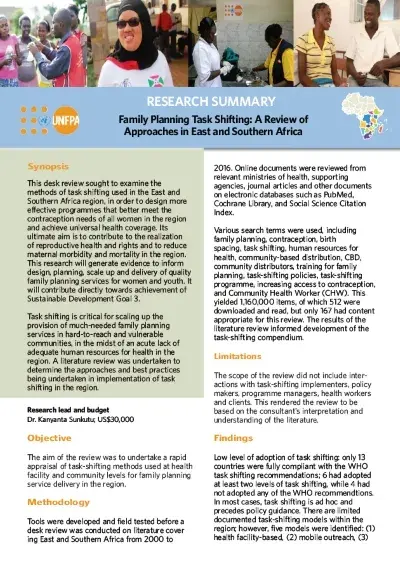This desk review sought to examine the methods of task shifting used in the East and Southern Africa region, to design more effective programmes that better meet the contraception needs of all women in the region and achieve universal health coverage. Its ultimate aim is to contribute to the realization of reproductive health and rights and to reduce maternal morbidity and mortality in the region.
Task shifting is critical for scaling up the provision of much-needed family planning services in hard-to-reach and vulnerable communities, in the midst of an acute lack of adequate human resources for health in the region.
Findings include a low level of adoption of task shifting: only 13 countries were fully compliant with the WHO task shifting recommendations; 6 had adopted at least two levels of task shifting, while 4 had not adopted any of the WHO recommendtions.



